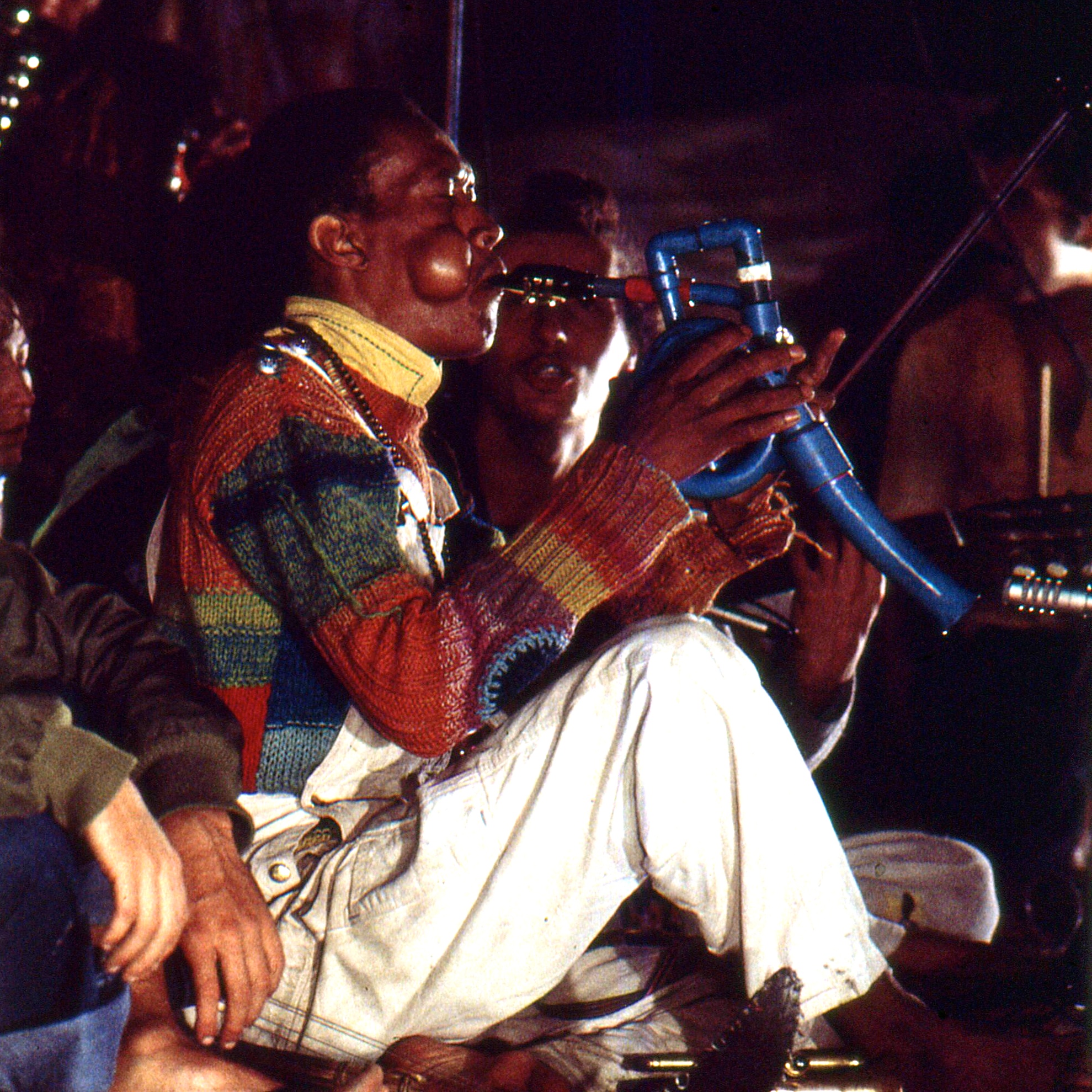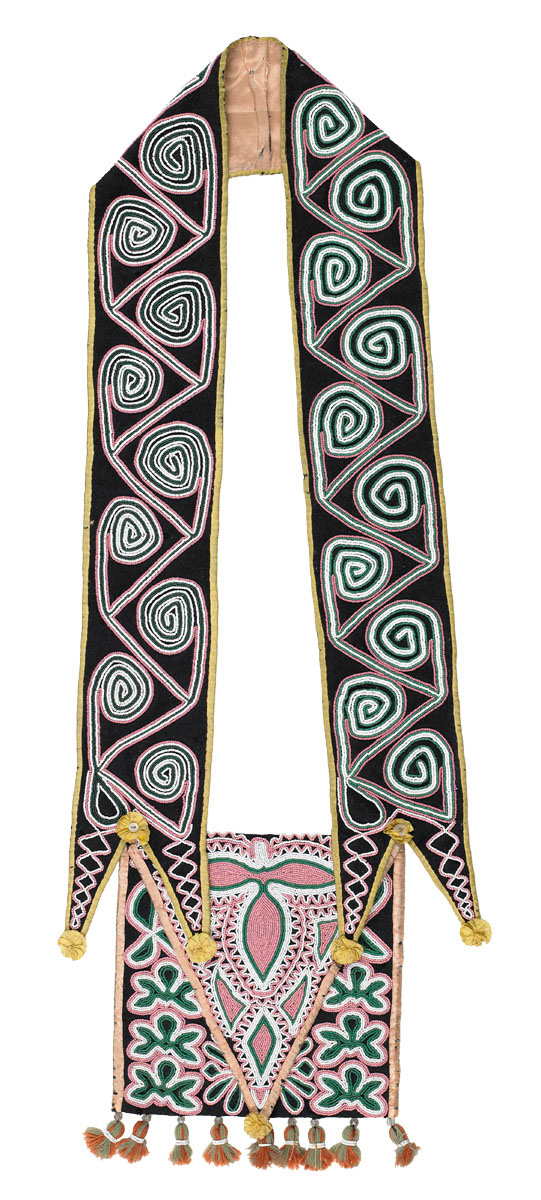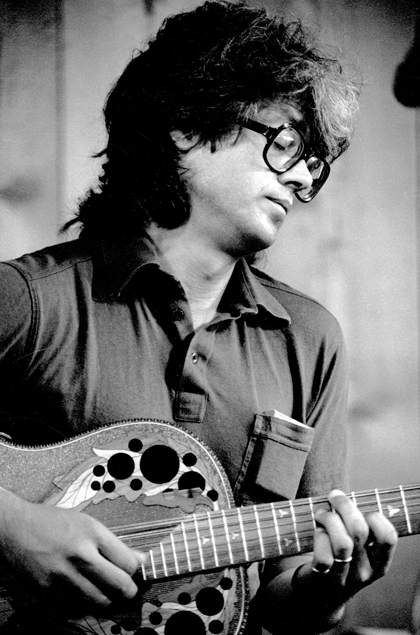|
Jim Pepper
Jim Gilbert Pepper II (June 18, 1941 – February 10, 1992) was an American jazz saxophonist, composer and singer of Kaw and Muscogee heritage. He moved to New York City in 1964, where he came to prominence in the late 1960s as a member of The Free Spirits, an early jazz-rock fusion group that also featured Larry Coryell and Bob Moses. Pepper went on to have a lengthy career in jazz, recording almost a dozen albums as a bandleader and many more as featured soloist or sideman. Pepper and Joe Lovano played tenor sax alongside each other in an acclaimed band led by drummer Paul Motian, recording three LPs in 1984, 1985 and 1987. Motian described Pepper's playing as "post- Coltrane". Don Cherry was among those who encouraged Pepper to bring more of his Native culture into his music, and the two collaborated extensively. Pepper died of lymphoma aged 50. Early life Jim Pepper was born on June 18, 1941, to Gilbert and Floy Pepper in Salem, Oregon. He grew up in Portland. He atten ... [...More Info...] [...Related Items...] OR: [Wikipedia] [Google] [Baidu] |
Salem, Oregon
Salem ( ) is the List of capitals in the United States, capital city of the U.S. state of Oregon, and the county seat of Marion County, Oregon, Marion County. It is located in the center of the Willamette Valley alongside the Willamette River, which runs north through the city. The river forms the boundary between Marion and Polk County, Oregon, Polk counties, and the city neighborhood of West Salem, Salem, Oregon, West Salem is in Polk County. Salem was founded in 1842, became the capital of the Oregon Territory in 1851, and was incorporated in 1857. Salem had a population of 175,535 at the 2020 United States census, making it the List of cities in Oregon, third-most populous city in the state after Portland, Oregon, Portland and Eugene, Oregon, Eugene. Salem is the principal city of the Salem Metropolitan Statistical Area, a United States metropolitan area, metropolitan area that covers Marion and Polk counties and had a combined population of 433,353 at the 2020 United States ... [...More Info...] [...Related Items...] OR: [Wikipedia] [Google] [Baidu] |
John Coltrane
John William Coltrane (September 23, 1926 – July 17, 1967) was an American jazz saxophonist, bandleader and composer. He is among the most influential and acclaimed figures in the Jazz#Post-war jazz, history of jazz and 20th-century music. Born and raised in North Carolina, after graduating from high school Coltrane moved to Philadelphia, where he studied music. Working in the bebop and hard bop idioms early in his career, Coltrane helped pioneer the use of Modal jazz, modes and was one of the players at the forefront of free jazz. He led at least fifty recording sessions and appeared on many albums by other musicians, including trumpeter Miles Davis and pianist Thelonious Monk. Over the course of his career, Coltrane's music took on an increasingly spiritual dimension, as exemplified on his most acclaimed album ''A Love Supreme'' (1965) and others. Decades after his death, Coltrane remains influential, and he has received numerous posthumous awards, including a Pulitzer ... [...More Info...] [...Related Items...] OR: [Wikipedia] [Google] [Baidu] |
Powwow
A powwow (also pow wow or pow-wow) is a gathering with dances held by many Native Americans in the United States, Native American and First Nations in Canada, First Nations communities. Inaugurated in 1923, powwows today are an opportunity for Indigenous people to socialize, dance, sing, and honor their cultures. Powwows may be private or public, indoors or outdoors. Dancing events can be competitive with monetary prizes. Powwows vary in length from single-day to weeklong events. In mainstream American culture, such as 20th-century Western movies or by military personnel, the term ''powwow'' was used to refer to any type of meeting. This usage is now considered by some Native Americans to be an offensive case of Cultural appropriation, appropriation because of the cultural significance powwows hold. History The word ''powwow'' is derived from the Narragansett language, Narragansett word ''powwaw'', meaning "spiritual leader." The term has variants, including ''Powaw'', ''Pa ... [...More Info...] [...Related Items...] OR: [Wikipedia] [Google] [Baidu] |
John F
John is a common English name and surname: * John (given name) * John (surname) John may also refer to: New Testament Works * Gospel of John, a title often shortened to John * First Epistle of John, often shortened to 1 John * Second Epistle of John, often shortened to 2 John * Third Epistle of John, often shortened to 3 John People * John the Baptist (died ), regarded as a prophet and the forerunner of Jesus Christ * John the Apostle (died ), one of the twelve apostles of Jesus Christ * John the Evangelist, assigned author of the Fourth Gospel, once identified with the Apostle * John of Patmos, also known as John the Divine or John the Revelator, the author of the Book of Revelation, once identified with the Apostle * John the Presbyter, a figure either identified with or distinguished from the Apostle, the Evangelist and John of Patmos Other people with the given name Religious figures * John, father of Andrew the Apostle and Saint Peter * Pope Jo ... [...More Info...] [...Related Items...] OR: [Wikipedia] [Google] [Baidu] |
Ornette Coleman
Randolph Denard Ornette Coleman (March 9, 1930 – June 11, 2015) was an American jazz saxophonist, trumpeter, violinist, and composer. He is best known as a principal founder of the free jazz genre, a term derived from his 1960 album '' Free Jazz: A Collective Improvisation''. His pioneering works often abandoned the harmony-based composition, tonality, chord changes, and fixed rhythm found in earlier jazz idioms. Instead, Coleman emphasized an experimental approach to improvisation rooted in ensemble playing and blues phrasing. Thom Jurek of AllMusic called him "one of the most beloved and polarizing figures in jazz history," noting that while "now celebrated as a fearless innovator and a genius, he was initially regarded by peers and critics as rebellious, disruptive, and even a fraud." Born and raised in Fort Worth, Texas, Coleman taught himself to play the saxophone when he was a teenager. He began his musical career playing in local R&B and bebop groups, and eventually fo ... [...More Info...] [...Related Items...] OR: [Wikipedia] [Google] [Baidu] |
Don Cherry (jazz)
Donald Eugene Cherry (November 18, 1936 – October 19, 1995) was an American jazz trumpeter, bandleader, and multi-instrumentalist. Beginning in the late 1950s, he had a long tenure performing in the bands of saxophonist Ornette Coleman, including on the pioneering free jazz albums ''The Shape of Jazz to Come'' (1959) and ''Free Jazz: A Collective Improvisation'' (1961). Cherry also collaborated separately with musicians including John Coltrane, Charlie Haden, Sun Ra, Ed Blackwell, the New York Contemporary Five, and Albert Ayler. Cherry released his debut album as bandleader, ''Complete Communion'', in 1966. In the 1970s, he became a pioneer in world music, with his work drawing on African, Middle Eastern, and Hindustani classical music, Hindustani music, as heard on the 1975 release ''Brown Rice (album), Brown Rice''. He was a member of the ECM Records, ECM group Codona, along with percussionist Naná Vasconcelos and sitar and tabla player Collin Walcott. Chris Kelsey of AllMusi ... [...More Info...] [...Related Items...] OR: [Wikipedia] [Google] [Baidu] |
Native American Music
Indigenous music of North America, which includes American Indian music or Native American music, is the music that is used, created or performed by Indigenous peoples of North America, including Native Americans in the United States and Aboriginal peoples in Canada, Indigenous peoples of Mexico, and other North American countries—especially traditional tribe (American Indian), tribal music, such as Pueblo music and Inuit music. In addition to the traditional music of the Native American groups, there now exist pan-Indianism and intertribal genre (music), genres as well as distinct Native American subgenres of popular music including: rock and roll, rock, blues, hip hop music, hip hop, classical, film music, and reggae, as well as unique popular styles like chicken scratch and New Mexico music. Characteristics Singing and percussion are the most important aspects of traditional Native American music. Vocalization takes many forms, ranging from solo and choral song to res ... [...More Info...] [...Related Items...] OR: [Wikipedia] [Google] [Baidu] |
Creek (people)
The Muscogee, also known as the Mvskoke, Muscogee Creek or just Creek, and the Muscogee Creek Confederacy ( in the Muscogee language; English: ), are a group of related Indigenous peoples of the Southeastern WoodlandsTranscribed documents Sequoyah Research Center and the American Native Press Archives in the . Their historical homelands are in what now comprises southern , much of , western |
Kaw (tribe)
The Kaw Nation (or Kanza or Kansa) is a Federally recognized tribe, federally recognized Native Americans in the United States, Native American tribe in Oklahoma and parts of Kansas. The Kaw people historically lived in the central Midwestern United States. They have also been called the "People of the South Wind","Constitution of the Kaw Nation." ''Kaw Nation.'' 2011. Retrieved 30 April 2012. "People of Water", ''Kansa'', ''Kaza'', ''Konza'', ''Conza'', ''Quans'', ''Kosa'', and ''Kasa''. Their tribal language is Kansa language, Kansa, classified as a Siouan languages, Siouan language. The state of Kansas was named for this tribe. The name of Topeka, capital city of Kansas, is said to be the Kaw word meaning 'a good place to grow potatoes'. The Kaw are closely related to the Osage Nation, with whom members ... [...More Info...] [...Related Items...] OR: [Wikipedia] [Google] [Baidu] |
Tenor Saxophone
The tenor saxophone is a medium-sized member of the saxophone family, a group of instruments invented by Adolphe Sax in the 1840s. The tenor and the alto are the two most commonly used saxophones. The tenor is pitched in the key of B (while the alto is pitched in the key of E), and is a transposing instrument in the treble clef, sounding an octave and a major second lower than the written pitch. Modern tenor saxophones which have a high F key have a range from A2 to E5 (concert) and are therefore pitched one octave below the soprano saxophone. People who play the tenor saxophone are known as "tenor saxophonists", "tenor sax players", or "saxophonists". The tenor saxophone uses a larger mouthpiece, reed and ligature than the alto and soprano saxophones. Visually, it is easily distinguished by the curve in its neck, or its crook, near the mouthpiece. The alto saxophone lacks this and its neck goes straight to the mouthpiece. The tenor saxophone is most recognized for ... [...More Info...] [...Related Items...] OR: [Wikipedia] [Google] [Baidu] |
Fusion Jazz
Jazz fusion (also known as jazz rock, jazz-rock fusion, or simply fusion) is a popular music genre that developed in the late 1960s when musicians combined jazz harmony and improvisation with rock music, funk, and rhythm and blues. Electric guitars, amplifiers, and keyboards that were popular in rock began to be used by jazz musicians, particularly those who had grown up listening to rock and roll. Jazz fusion arrangements vary in complexity. Some employ groove-based vamps fixed to a single key or a single chord with a simple, repeated melody. Others use elaborate chord progressions, unconventional time signatures, or melodies with counter-melodies. These arrangements, whether simple or complex, typically include improvised sections that can vary in length, much like in other forms of jazz. As with jazz, jazz fusion can employ brass and woodwind instruments such as trumpet and saxophone, but other instruments often substitute for these. A jazz fusion band is less likely to use ... [...More Info...] [...Related Items...] OR: [Wikipedia] [Google] [Baidu] |
Madison High School (Portland, Oregon)
Leodis V. McDaniel High School (MHS, colloquially McDaniel High School) is a public high school located in northeast Portland, Oregon, United States. History The high school was founded in 1957 as Madison High School, named after Founding Father James Madison. Construction on the campus began in 1955. Teacher Leodis V. McDaniel became the principal of the school in 1983, and remained until his death in 1987. On June 29, 2004, the school was damaged by fire, probably caused by fireworks. Two movies have been filmed at the school: '' Paranoid Park'' (2007) and ''Twilight'' (2008). The school was renovated in 2019–2021 as part of a $790 million bond measure passed in 2017. Classes took place at the former Marshall High School in Portland's Lents neighborhood during the renovation. During the renovations, the school board began a process to re-name the school, as Madison had been a slaveholder. On February 24, 2021, Portland Public School Board voted to rename Madison High Scho ... [...More Info...] [...Related Items...] OR: [Wikipedia] [Google] [Baidu] |







